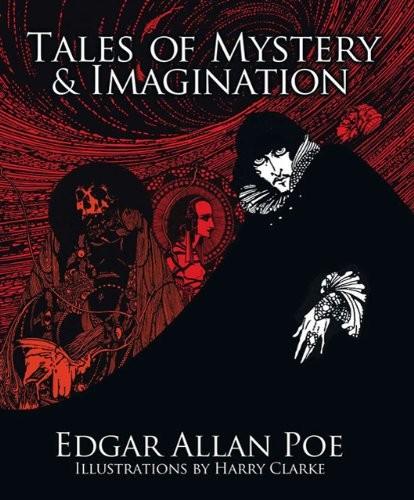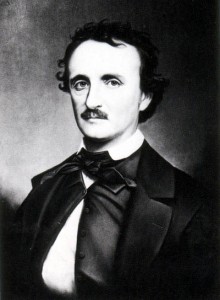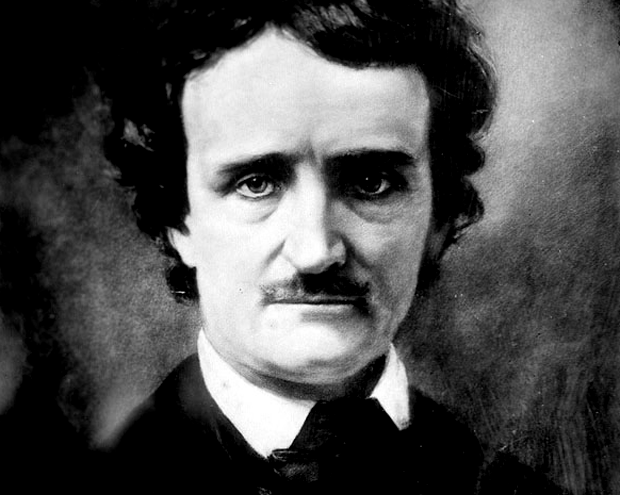Paying Homage to the Pioneer of the Short Story on his Birthday
“Literature is the most noble of professions. In fact, it is about the only one fit for a man. For my own part, there is no seducing me from the path.”
On January 19 thousands will celebrate what would have been Edgar Allan Poe’s 204th birthday. Although he passed away more than 163 years ago, he remains a literary, horror and pop culture icon. In a time where short stories are becoming more popular in an increasingly competitive market, Maria Nayef looks at Poe’s theory of ‘the unity of effect’ and what writers of the short tale can still learn from Poe today.
Poe is often referred to as the ‘pioneer’ or the ‘father’ of the short story; that is because he was the first person to set down a consistent set of principles on how to write what he referred to as the ‘short prose narrative,’ ‘the prose tale’ and the ‘brief tale.’ If constructed successfully (according to Poe’s theory) it would become the ‘the Tale proper.’ Today we know it as the short story: a concise burst of writing whose sole purpose is to entertain, and it is what Poe — with his theory of what constituted the short story in its proper form — produced, promoted and revolutionized.
Poe’s theory on how ‘the Tale proper’ should be composed was born from his wish to create a need for it among the reading public that subscribed to magazines. It was also inspired by texts such as Samuel Taylor Coleridge’s Biographica Literaria and Augustus William Schlegel’s Course of Lectures on Dramatic Art and Literature. Poe believed that people’s lives were becoming increasingly convoluted and long narratives, like novels or even epic poems such as Milton’s Paradise Lost, were incapable as a whole of making a strong and single impression if they took longer than an hour to read. If Poe composed narratives that could be read quickly and left a powerful impression, then he could create a market for them, ensuring his popularity as well as his livelihood — and that is what he did.
Many of Poe’s short tales caused a sensation in America and overseas; some readers and critics even believed Poe’s diligently constructed narratives were accounts of real events. Poe, a visionary of literature, and with a vested interest in science and psychology, challenged his readers by making them question whether they were reading fact or fiction. Most importantly, Poe wrote his tales with all kinds of readers in mind, from what he called ‘the reader of taste,’ to magazine readers he considered ‘the lowest order of the lettered mob.’ Many missed the point on what Poe was attempting to accomplish and assumed stories that powerfully conveyed melancholy or madness were a reflection of the man himself; but the readers were hooked, and Poe exploited their need to be shocked.
Although Poe was already writing stories to his theory (commonly referred to as ‘the unity of effect’ or ‘the single principle’) from as early as 1835, it was not published until some years later in two of his most important critical articles: ‘Review of Hawthorne — Twice-Told Tales‘ in 1842 and ‘The Philosophy of Composition’ in 1846.
In his review of Twice-Told Tales Poe praised Hawthorne for his ‘truly imaginative intellect’ but said it was hindered by his ‘fastidiousness of taste, by constitutional melancholy and by indolence.’ Poe wrote that ‘the Tale proper’ must be short enough to be read ideally within an hour and it must be read without interference: ‘During the hour of perusal,’ Poe explained, ‘the soul of the reader is at the writer’s control. There are no external or extrinsic influences resulting from weariness or interruption.’

Poe revolutionized the short story with his theory of ‘the unity of effect.’
Similarly, the short story required ‘a unity of effect’ which according to Poe was only achieved with detailed planning of the plot along with a calculated attention to detail. To achieve a unified whole in the narrative the author would have to premeditate the incidents of the story and then combine them in the correct order.
Poe explained that:
In the whole composition there should be no word written, of which the tendency, direct or indirect, is not to the one pre-established design. And by such means, with such care and skill, a picture is at length painted which leaves in the mind of him who contemplates it with a kindred art, a sense of the fullest satisfaction. The idea of the tale has been presented unblemished, because undisturbed; and this is an end unattainable by the novel.
Four years later in The Philosophy of Composition (which he wrote to explain the steps he took to compose ‘The Raven’) Poe claimed he wrote the now infamous poem ‘with the precision and rigid consequence of a mathematical problem.’ He claimed that some formulas that applied to poetry also applied to prose –– namely ‘effect’ –– stating every author, before embarking on writing a poem or a tale, should ask themselves: ‘Of the in-numerable effects, or impressions, of which the heart or the soul is susceptible, what one shall I, on the present occasion select?’
Poe stressed that a short story should focus on only one incident and one central character. The plot, the theme and the protagonist should be arranged carefully and the story constructed in a precise order to create ‘a unity of effect.’ Poe insisted the subject matter of a short story should be ‘universally appreciable’ and originality ‘must be elaborately sought’ being ‘a merit of the highest class.’ Once more Poe stressed the importance of detailed planning: for ‘every plot, worth the name, must be elaborated to its dénouement before any thing be attempted with the pen.’ Again Poe emphasized keeping the story as short as possible for ‘if two sittings be required, the affairs of the world interfere, and every thing like totality is at once destroyed.’ To Poe, the poem was about attaining beauty and melancholy, but ‘the object, Truth, or the satisfaction of the intellect, and the object Passion, or the excitement of the heart, are … far more readily attainable in prose.’
While his review of Hawthorne’s Tales and the ‘The Philosophy of Composition’ contain the crux of Poe’s theory there is more to learn from Poe about successful short story writing from his Marginalia entries, reviews and literary criticisms. In discussing what made a good mystery story, Poe wrote in his 1842 review of Charles Dickens’ Barnaby Rudge of the necessity of guarding the secret of the narrative carefully: if the reader is able to unravel the mystery before the moment the author has planned to reveal it then ‘his purposes are immediately at odds and ends; for he proceeds upon the supposition that certain impressions do exist, which do not exist, in the mind of his readers.’ Poe expressed in his Marginalia the importance of endings, warning writers that a poor climax was a great insult to readers who would be left unsatisfied upon completing the story: ‘Of all literary foibles the most fatal, perhaps, is that of defective climax.’
A well-known employer of ‘the dash‘ Poe encouraged its use as it gave readers ‘a choice between two, or among three or more expressions … all of which help out the idea.’ Correct punctuation was paramount in engaging the reader with a text or the author risked robbing a sentence ‘of half its force — its spirit — its point’ and when it came to grammar Poe was clear: ‘A man’s grammar, like Caesar’s wife, must not only be pure, but above suspicion of impurity.’
Poe advised against wasting time on character construction in short stories for ‘there is no space for development of character or for great profusion and variety of incident.’ He cautioned against using ‘supposititious titles’ because they could dupe readers into believing they were going to read one thing and be left feeling unsatisfied if the story failed to fulfill their expectations. He emphasised the importance of a strong opening passage, for ‘good books suffer neglect through the inefficiency of their beginnings! It is far better that we commence irregularly — immethodically — than that we fail to arrest attention.’ Poe was annoyed by and chastised any ‘procrastination’ in short stories as well as any ‘mere talk for talk’s sake.’
Poe’s dedication to his craft and his determination to create ‘the Tale proper’ is a testament to the longevity — and continuing influence — of his short stories; his potent effect on readers remains as powerful as it did when his first tale was published 180 years ago. As Thomas H. Cook recently said in a moving tribute to Poe: ‘We remember the beating of a Tell-Tale Heart and “the moaning and groaning” of the bells. To remember a writer in this way is to be haunted by him, to have his words and scenes and characters forever alive in your mind. That is what true literary greatness is, and it is a greatness that was Poe’s.’
Happy 204th Birthday Edgar Allan Poe!
 “To be appreciated you must be read, and these things are invariably sought after with avidity.”
“To be appreciated you must be read, and these things are invariably sought after with avidity.”

From a letter to T.W. White, 1835.
You can read all of Poe’s short stories and critical articles at eapoe.org, the authoritative and scholarly Edgar Allan Poe resource on the web.

















Comments are closed.